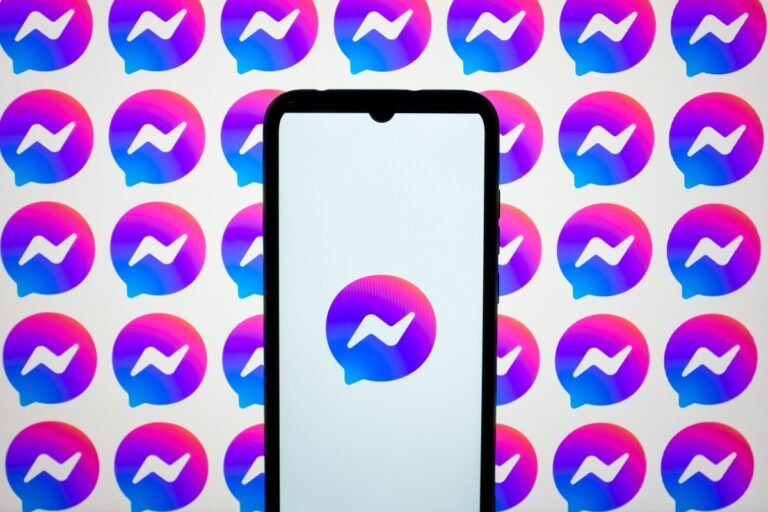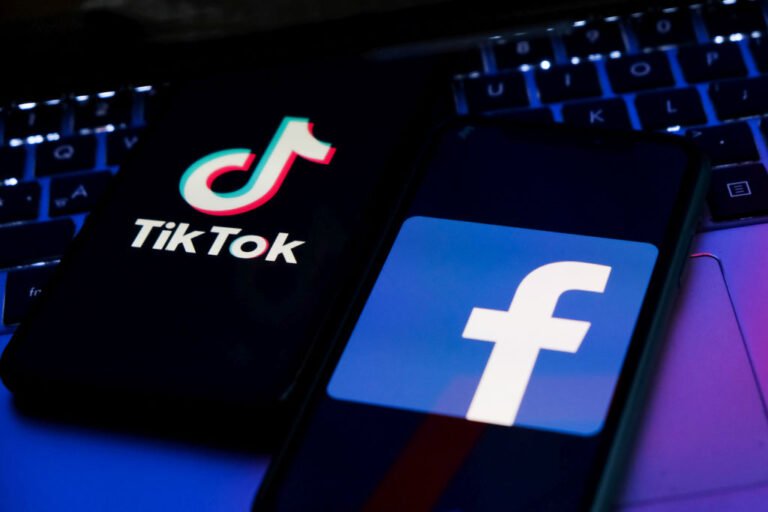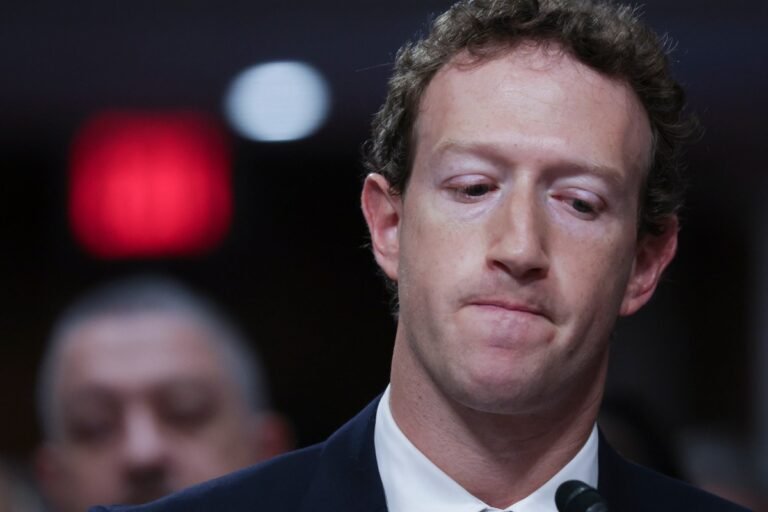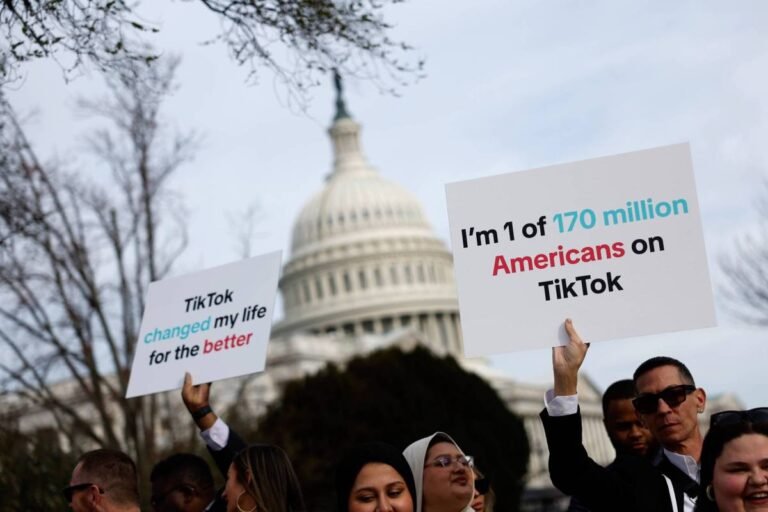
Meta is quietly rolling out a new “Communities” feature on Messenger, the company confirmed to TechCrunch.
The rollout comes as Meta introduced Communities on WhatsApp back in 2022.
They could create dedicated group chats for topics like upcoming events, security alerts, trash pickup schedules, and more.
Although the feature works similarly to Communities on WhatsApp, Meta says there is one key differentiator, which is the fact that Messenger Communities are connected to Facebook’s social graph.
On a help page, Meta says Communities on Messenger are designed for more public conversations when compared to Facebook groups.

The Oversight Board, Meta’s semi-independent policy council, it turning its attention to how the company’s social platforms are handling explicit, AI-generated images.
Tuesday, it announced investigations into two separate cases over how Instagram in India and Facebook in the U.S. handled AI-generated images of public figures after Meta’s systems fell short on detecting and responding to the explicit content.
In other words, after two reports, the explicit AI-generated image remained on Instagram.
The second case relates to Facebook, where a user posted an explicit, AI-generated image that resembled a U.S. public figure in a Group focusing on AI creations.
Meta’s response and the next stepsIn response to the Oversight Board’s cases, Meta said it took down both pieces of content.

Facebook is introducing a new, full-screen video player on Wednesday, which offers a more consistent design and experience for all types of video lengths, including short-form Reels, long-form videos, and even Live content.
These improved recommendations will also appear outside the player, on the Facebook Feed and Video tab.
Facebook says its upgraded player will also offer new controls like a full-screen mode for horizontal videos and a slider to skip around in longer videos.
TikTok, by comparison, has also tested horizontal videos and long-form content of 30 minutes as it looks to compete with YouTube and other sites.
The timing of the video player change also comes at a time when U.S. lawmakers are weighing a possible TikTok ban, which, if enacted, could increase video consumption on other social platforms.

Meta is denying that it gave Netflix access to users’ private messages.
Meta’s communications director, Andy Stone, reposted the original X post on Tuesday with a statement disputing that Netflix had been given access to users’ private messages.
However, The New York Times had previously reported in 2018 that Netflix and Spotify could read users’ private messages, according to documents it had obtained.
“No third party was reading your private messages, or writing messages to your friends without your permission.
Many news stories imply we were shipping over private messages to partners, which is not correct,” the blog post stated.

In 2016, Facebook launched a secret project designed to intercept and decrypt the network traffic between people using Snapchat’s app and its servers.
The goal was to understand users’ behavior and help Facebook compete with Snapchat, according to newly unsealed court documents.
The newly released documents reveal how Meta tried to gain a competitive advantage over its competitors, including Snapchat and later Amazon and YouTube, by analyzing the network traffic of how its users were interacting with Meta’s competitors.
Given that Snapchat encrypted the traffic between the app and its servers, this network analysis technique was not going to be effective.
Later, according to the court documents, Facebook expanded the program to Amazon and YouTube.

Remember when you would “poke” your friends on Facebook to get their attention, annoy them or just start a poke war?
Well, Facebook is trying to bring back that experience with some small updates to the poking feature.
Plus, Facebook added the ability to poke a friend when you search for them on the social network.
Facebook says these small changes have led to a 13x spike in poking in the past month.
Facebook never defined what the idea behind poking was, and left it up to users’ interpretation, with some choosing to use it a way to flirt.

The House voted on Wednesday in favor of a bill to require TikTok to sever its connection with parent company ByteDance or face a ban, moving the legislation forward with surprising speed.
President Joe Biden has already said that he would support the legislation, but TikTok faces an uncertain fate as the bill heads to the Senate.
“Without TikTok, you can make Facebook bigger, and I consider Facebook to be an enemy of the people,” Trump said.
The bill’s quick progress out of committee last week to a full House vote appears to have caught TikTok by surprise.
TikTok CEO Shou Chew also headed to Capitol Hill to drum up opposition to the bill before Wednesday’s vote.

Reports are coming in that a number of Meta’s top social apps, including Facebook and Instagram, as well as its new app Threads, are all experiencing an outage on Tuesday morning.
We’ve reached out to Meta to confirm the timing and the reports and will update if we hear more information.
In the meantime, Meta communications director Andy Stone has confirmed the outage in a post on X, noting, “We’re aware people are having trouble accessing our services.
To quell its potential role in influencing the elections’ outcome, Meta disables political ads in the timeframe leading up to key elections, like the U.S. midterms.
To address newer concerns, Meta also announced it would label political ads with AI-generated imagery for the 2024 election cycle.

Facebook plans to shut down its news tab in the U.S. and AustraliaMeta is trying to distance itself from news media-related regulations and payment complexities as it is planning to remove the news tab on Facebook in the U.S. and Australia.
The social media company said that the number of people using Facebook News in Australia and the U.S. dropped by 80% in the last year.
“This is part of an ongoing effort to better align our investments to our products and services people value the most.
The fate of Facebook News’ shutdown is due to regulatory moves and Meta’s withdrawal from investing in new products.
Legislations passed in countries Australia and Canada resulted in authorities asking platforms to pay online publishers for their content.

Ina Herlihy believes e-commerce brands are losing out on organic traffic and potential revenue by relying on third-party community sites, like Reddit and Facebook Groups.
By building an onsite community, brands are able to increase that retention and drive more organic traffic because the community is on their own domain.
In addition, AddGlow integrates with a brand’s catalog so community members can tag products when mentioning them.
“We started partnering with smaller brands, and now we’re building additional functionality to support larger brands, too,” Herlihy said.
Our goal is to foster a safe space for community members to seek personal advice and build meaningful connections.”













